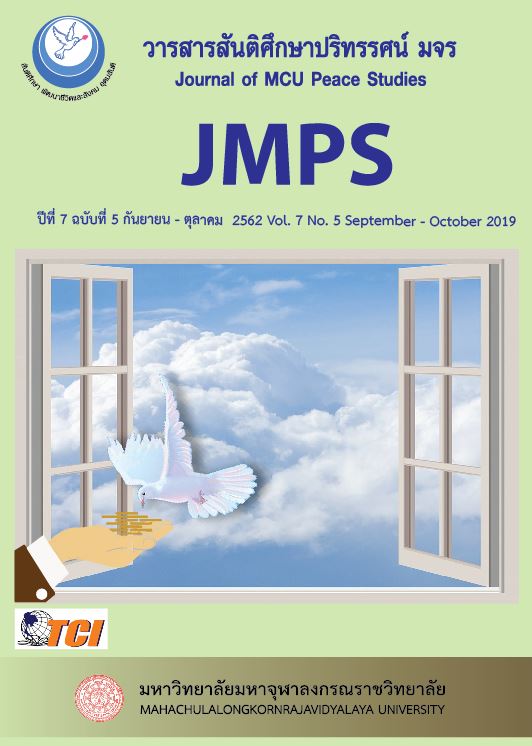Role of Election Organization at National and Local Levels on Public Opinions to Promote Democratic Society
Main Article Content
บทคัดย่อ
This study targets to identify and put into a structure organizing the elements that election organization can exploit to support and enable the public opinions in the election process in order to benefi t towards promoting democratic society. The methodology is literature review. The deductive approach of the literature review is a synthesizing mechanism which leads to a simple conceptual framework illuminating the role of election organization in protecting public opinion and inspiring promising democracy. Four elements should be actively pursued to support and enable the roles of election organizations, namely the establishment of ISO Quality Management Systems (QMS), election observations, good educational systems, and normative institutional rule and body. Public opinions form an essential input to a quality election process, as argued for the expressive, normative, prospective, and expectation-oriented information the government and relevant political parties can make use of. The literature review arrives at a simple input-process-output framework that puts a structural guideline for the election organizations to facilitate for a quality and equality of public opinions.
Article Details
ทัศนะและความคิดเห็นที่ปรากฏในบทความในวารสาร ถือเป็นความรับผิดชอบของผู้เขียนบทความนั้น และไม่ถือเป็นทัศนะและความรับผิดชอบของกองบรรณาธิการ ยินยอมว่าบทความเป็นลิขสิทธิ์ของวารสาร
เอกสารอ้างอิง
Arnold, A.K. (2010). Problems of public opinion. Retrieved November 1, 2015, from http://blogs.worldbank.org/publicsphere/problems-public-opinion.
Bevan, S. & Krewel, M. (2015). Responsive elections: The effect of public opinionon political campaigns. Electoral Studies, 1-8, Retrieved July 06, 2016, from http://dx.doi.org/10.1016/j.electstud.
Christiano, T.D. (2015). Democracy: normative theory. International Encyclopedia of the Social & Behavioral Sciences, 6, 85-89.
Freeland, E.P. (2015). Public opinions: Social attitudes. International Encyclopedia of the Social & Behavioral Sciences, 19, 562-568.
Héricourt, J. & Spielvogel, G. (2010). Public opinions and immigration: Individual attitudes, interest groups and the media. SOPEMI: International Migration Outlook.
Huntington, S, P. (1991). The third wave: Democratization in the late twentieth century. Oklahoma: University of Oklahoma Press.
International Institute for Democracy and Electoral Assistance (2012). The integrity of elections: The role of regional organizations. Stockholm: Trydells Tryckeri.
Ministry of Community, Sport and Cultural Development (2014). Elector organization guide to local government elections in B.C. Retrieved October 31, 2015, from https://www.google.co.th/urlsa=t&rct=j&q=&esrc=s&source=web&cd=1&ved=0CBsQFjAAahUKEwiamMbKjO_IAhWjq6YKHePuBsM&url=http%3A%2F%2Fwww.cscd.gov.bc.ca%2Flgd%2Flibrary%2Felection2014%2FElector_Organization_Guide.pdf&usg=AFQjCNF9tCl4ia5q6vp8kjlQ3SsJmltPA&sig2=Q9kZxWTKw2s_QTrJhrKrhA&bvm=bv.106379543,d.dGY&cad=rja.
Key, V.O. (1961). Public opinion and American democracy. New York: Knopf.
O’Connor, K. & Sabato, L.J. (2008). American government: Continuity and change. Texas: Pearson Education, Inc.


